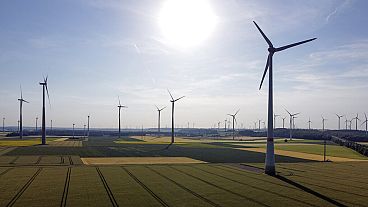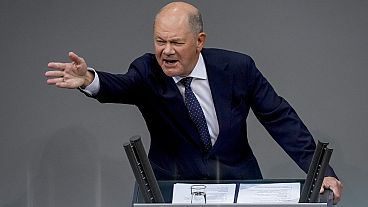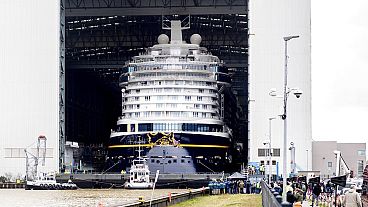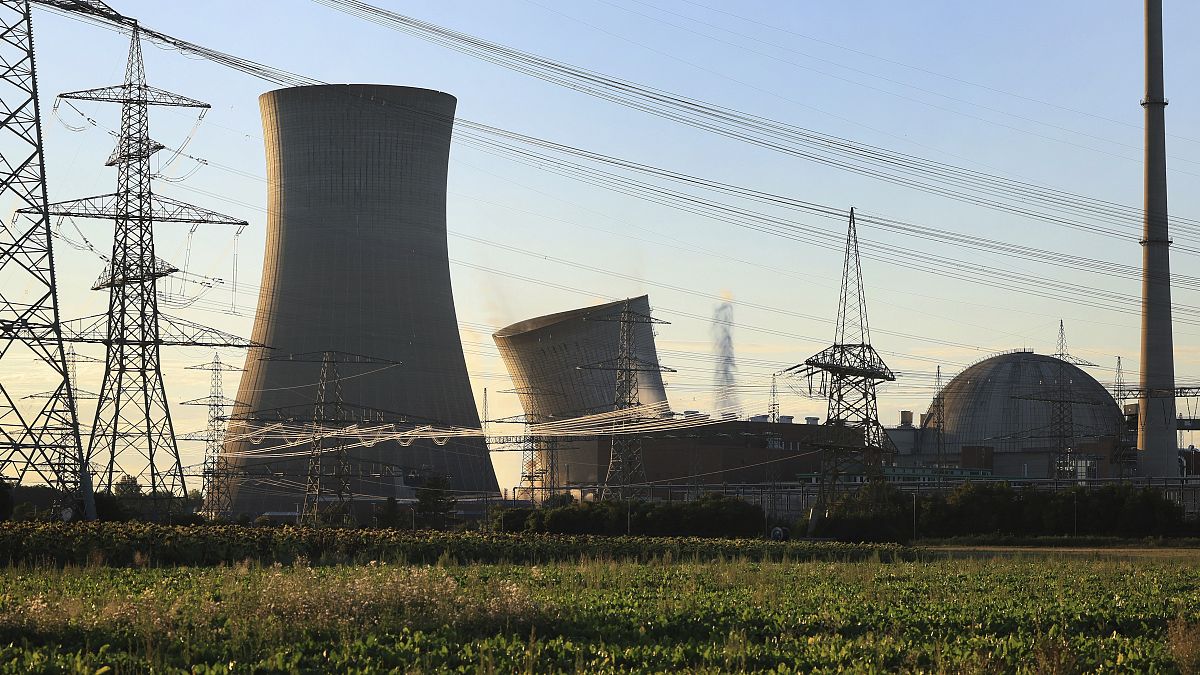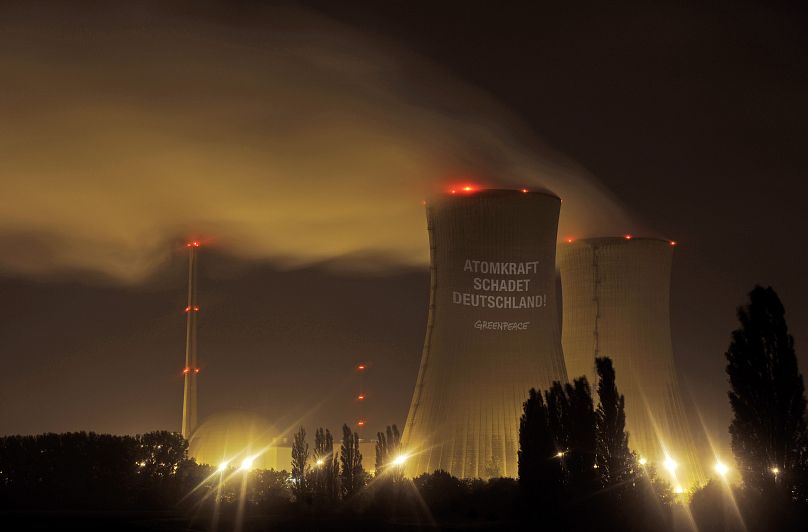Construction of the Grafenrheinfeld NPP in the southern state of Bavaria began in 1975 with the plant beginning commercial operations in 1982. It was Germany's oldest nuclear power plant but was closed in 2015 as part of the government's policy to transition away from nuclear power.
Germany's decommissioned nuclear power plant at Grafenrheinfeld has been demolished after a short delay.
The demolition of the plant's two, 143-metre cooling towers was originally planned to take place at 17.30 local time but was pushed back to almost 20:00 after a pro-atomic energy activist scaled one of the pylons in protest at its destruction.
Police spokesperson Denis Stegner said the unnamed activist chained themselves to the pylon 10 metres above the ground and a special team was deployed to free him before he was taken away by police.
Construction of the Grafenrheinfeld site in the southern state of Bavaria began in 1975 with the plant beginning commercial operations in 1982. It was Germany's oldest nuclear power plant.
But as part of the government's policy to transition away from nuclear power, it was closed in 2015.
The then Environment Minister Barbara Hendricks said its closure was "a visible signal that the nuclear exit is moving forward."
"Every nuclear power station that goes offline reduces the so-called residual risk that is linked to the use of nuclear power plants and moves us a step forward in the reorganization of our energy supply," she said in 2015.
However Ulrich Grillo, former President of the German Federation of Industry (BDI), warned nuclear plants being decommissioned could also have a negative impact.
"When a plant goes offline, it becomes more difficult, regionally, to ensure security of supply," he told the Neue Osnabrücker newspaper. He said that in order to keep Germany's clean power industry viable, production and jobs needed to be secured.
Under its 'Energiewende' (Energy Transition) strategy, Germany is aiming to have around 80 percent of its electricity supplied from renewable sources by 2050.
A quarter of the country's power needs currently come from sustainable sources, but there are doubts that the 'Energiewende' plan is sustainable.
In the time that Grafenrheinfeld was operational, the plant provided over 11 percent of Bavaria's energy, according to the Germany utility company E.ON.
Project leader for the demolition, Matthias Aron, said that after the demolition, the concrete rubble would be used to fill the two collecting basins below the towers.
The demolition, which lasted around 30 seconds, created around 55,000 tonnes of concrete rubble.
"The two towers have been with us for as long as I can remember. They are an important landmark. They have always been a symbol for us," said Grafenrheinfeld's mayor Christian Keller.

